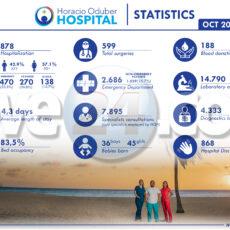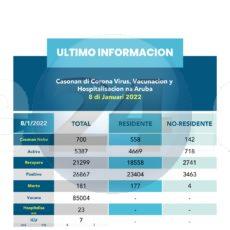

In Latin America and the Caribbean, 15 countries have surveillance systems for these anomalies, which cause almost 20,000 deaths of infants up to 28 days old.
| Montevideo/Washington, March 2, 2021 (CLAP/PAHO) – On World Birth Defects Day taking tomorrow, the Pan American Health Organization (PAHO) urged early detection of birth defects and continuous support and care to newborns and their families so they can develop to their full potential. In Latin America and the Caribbean, approximately 1 in 5 deaths during the first 28 days of life – almost 20,000 infant deaths in total – are due to congenital defects. The anomalies, which can be structural or functional, occur during gestation. The most common and serious are congenital heart defects, neural tube defects and chromosomal abnormalities such as Down syndrome. “Congenital defects are today one of the main causes of death of newborns in the region, however, they are mostly preventable,” said Dr. Pablo Duran, regional advisor for PAHO’s Latin American Center for Perinatology/Women’s Health and Reproductive Health (CLAP). “In order not to leave any child behind, it is essential to have timely and quality information on these anomalies in all countries,” he said. In 2016, Congenital Zika Syndrome was added to the list of congenital defects. The Zika virus is associated with microcephaly and other birth defects, and its impact in the Americas highlighted the need for information that allows for timely intervention. The recent publication, “Present and Future of Birth Defects Surveillance in the Americas,” produced by PAHO and the World Bank with funding from the U.S. Agency for International Development (USAID), indicates that it is fundamental for countries to have a birth defects surveillance system. In Latin America and the Caribbean, Argentina, Bolivia, Brazil, Colombia, Costa Rica, Cuba, Dominican Republic, El Salvador, Guatemala, Honduras, Mexico, Panama, Paraguay, Uruguay and Venezuela have a birth defects surveillance system. PAHO has been working for years to raise awareness of the problem and to implement surveillance actions in the health and government sectors. However, there is still a long way to go. PAHO’s CLAP is collaborating with creation of a regional registry of congenital defects using reports from the countries’ surveillance systems. “Preventing children from dying and ensuring that they thrive is our priority,” said Dr. Duran. “Birth defects account for a significant proportion of neonatal deaths in the region and we must do more to prevent them.” |











